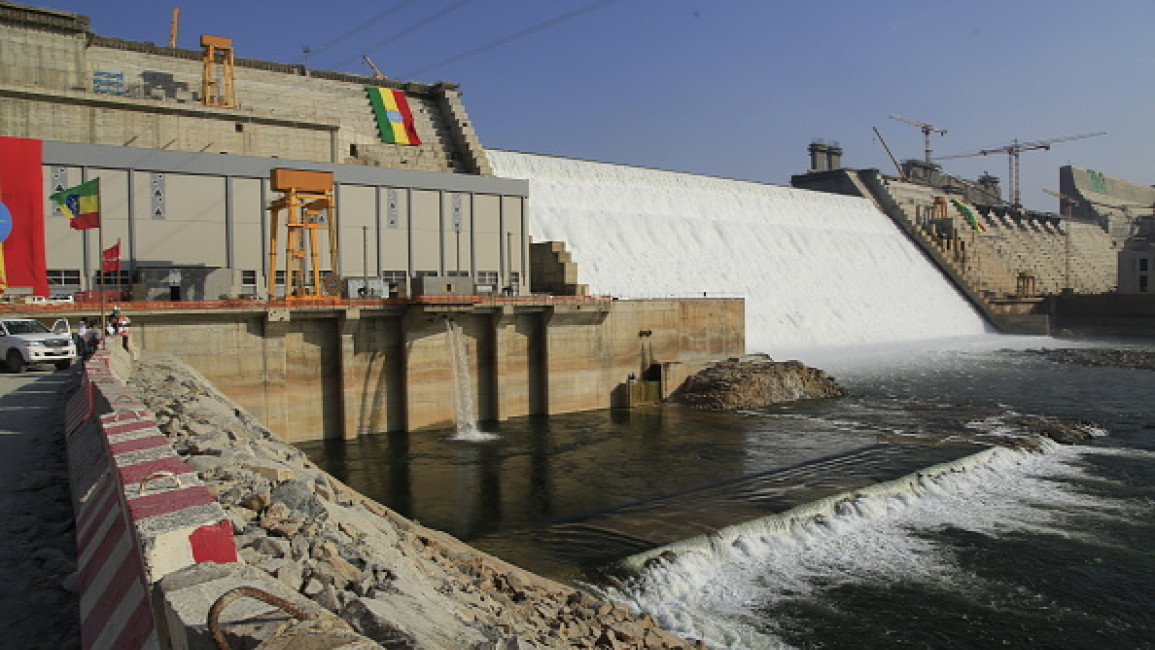Tensions rise between Egypt and Ethiopia amid expected unilateral filling of Nile Dam
Tensions have increased between Egypt and Ethiopia in recent days as Ethiopia prepares to fill its Great Ethiopian Renaissance Dam (GERD) for the third time, starting next August.
Ethiopia earlier this week accused the European Union of “bias towards Egypt” after it issued a statement calling for a binding agreement on the filling and operation of the GERD earlier this month.
Ethiopia’s Great Renaissance Dam has been a source of bitter dispute between Egypt and Sudan on the one hand and Ethiopia on the other, with the two downstream nations accusing the east African country of trying to cut off their water supply.
The three countries agreed on a “Declaration of Principles” regarding the construction of the dam in 2015, but since then have been unable to reach agreement on the operation of the dam, with Ethiopia unilaterally filling it in 2020 and 2021.
“The Ethiopian government’s proceeding with the third filling of the dam, without a legally binding and comprehensive agreement with Egypt and Sudan governing the filling and operation of the dam is a new violation of the Declaration of Principles,” an Egyptian diplomatic source told The New Arab’s Arabic-language service.
“The fifth chapter of the Declaration stipulates guidelines and rules for the first filling of the dam and its annual operation,” the source said. “Egypt reserves its right to reject any unilateral steps by Ethiopia regarding the Renaissance Dam, which affects millions of Egyptians and Sudanese.”
The Egyptian government has faced pressure from within Egypt to put more pressure on Ethiopia and take the issue of the GERD to the UN Security Council and other international organisations.
However another Egyptian diplomatic source told The New Arab’s Arabic-language service that it was “difficult for the Egyptian government to knock on the door of any international forum”.
“It went to the UN Security Council more than once, without any significant result,” he said.
Ayman Salamah, a professor of international law, told The New Arab’s Arabic-language service that Ethiopia “was using the regional and international status quo to impose a fait acompli” adding that it was disregarding all international laws and agreements which govern the fair distribution of water resources across international borders.
He said it was unlikely that any final agreement would be reached between Ethiopia and Egypt regarding the GERD.


![Minnesota Tim Walz is working to court Muslim voters. [Getty]](/sites/default/files/styles/image_684x385/public/2169747529.jpeg?h=a5f2f23a&itok=b63Wif2V)




![Debris near Rafic Hariri International Airport [Getty]](/sites/default/files/styles/image_330x185/public/2176162423.jpeg?h=a5f2f23a&itok=MCSK9mkM)
![An Israeli air strike on Jabalia killed teenage journalist Hassan Hamad [Screengrab/X]](/sites/default/files/styles/image_330x185/public/2024-10/hassan%20hamad1.jpg?h=c12e0b96&itok=Rd_dyCVp)
